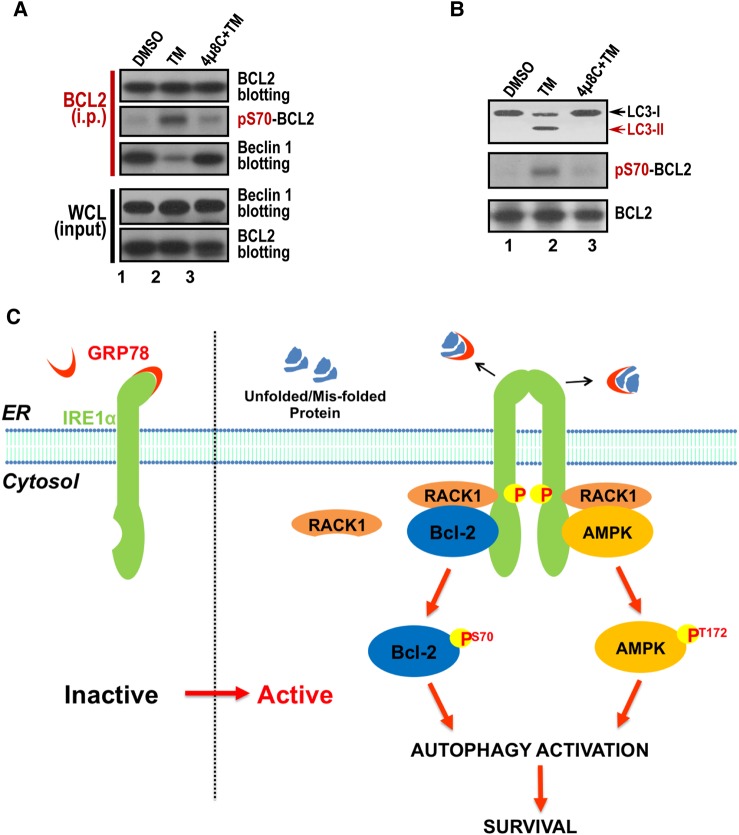Figure 7.
ER stress preconditioning elicits autophagy via phospho-regulation of BCL2–Beclin 1 interaction. (A) Phosphorylation of BCL2 perturbs BCL2–Beclin1 interaction. Aliquots of HepG2 cells were treated with IRE1 inhibitor 4μ8C and equal volume of DMSO, followed by TM treatment. The treated cells were harvested and subjected to BCL2 immunoprecipitation. The immunoprecipitates were probed for BCL2, pS70-BCL2, and Beclin 1. Note that phosphorylation of Ser70 releases Beclin 1 from BCL2 binding. (B) ER stress preconditioning by TM treatment induces autophagy via LC3 cleavage. Aliquots of HepG2 cells were treated with IRE1 inhibitor 4μ8C and equal volume of DMSO, followed by TM treatment. The treated cells were harvested and subjected to western blotting analyses of BCL2, pS70-BCL2, and LC3. Note that TM treatment elicits autophagy judged by LC3 proteolysis, and this proteolytic event is blocked by IRE1 inhibitor 4μ8C. (C) The working model accounting for ER stress preconditioning-elicited cytoprotection from I/R injury. Preconditioning via ER stress elevates AMP/ADP level, which activates AMPK by phosphorylation at Thr172. Phosphorylated AMPK then phosphorylates IRE1 at Ser724. Activated IRE1 further phosphorylates BCL2 at Ser70, which disrupts BCL2–Beclin 1 interaction to trigger autophagy and thus promote cell survival activity.

